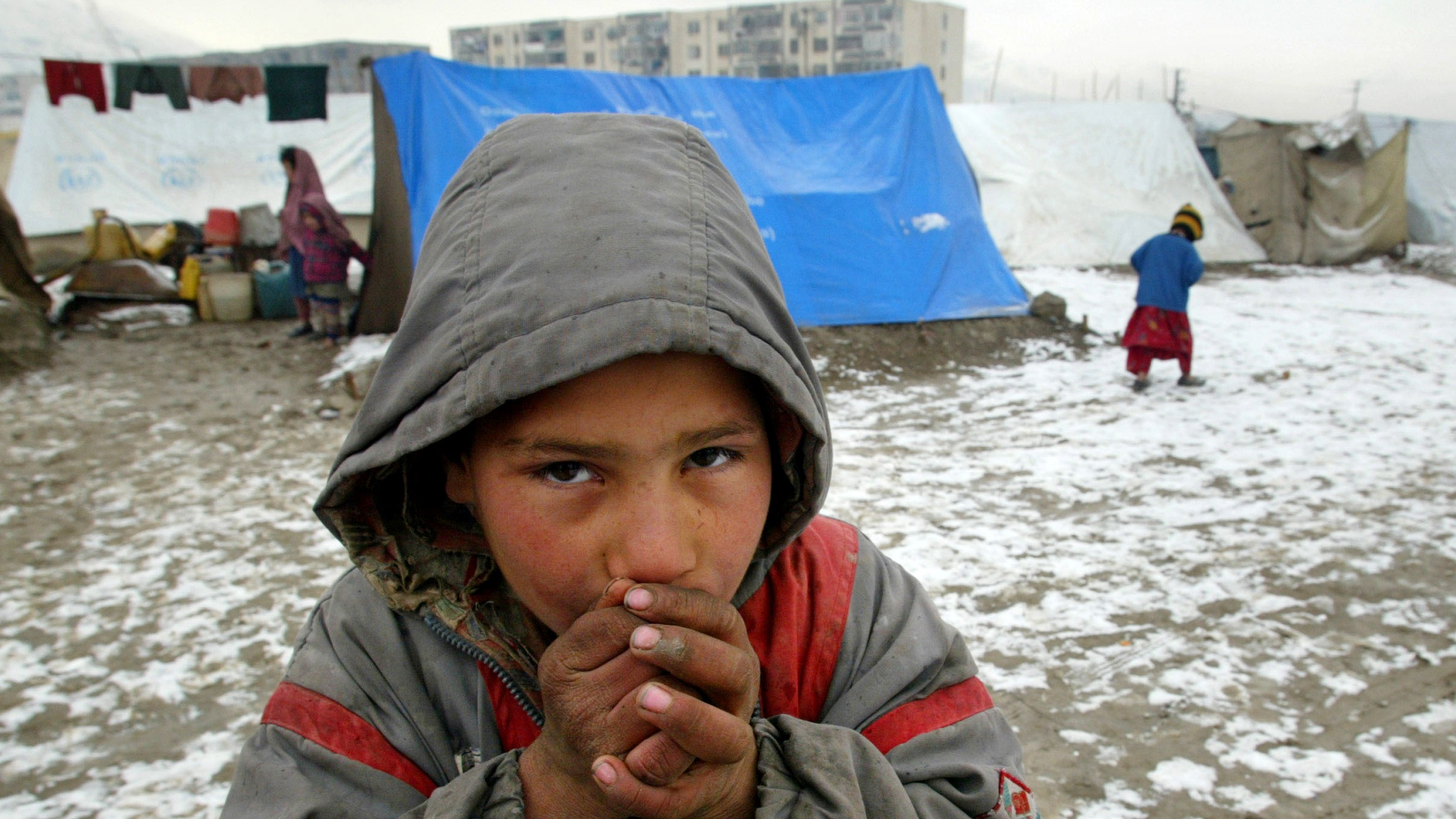Afghanistan aid efforts ‘falling short’ as winter crisis escalates
Extreme poverty is forcing parents to sell children and organs to survive

A free daily email with the biggest news stories of the day – and the best features from TheWeek.com
You are now subscribed
Your newsletter sign-up was successful
All but 2% of the Afghan population do not have enough to eat as the worst drought in three decades followed by freezing winter temperatures compounds the crisis triggered by the withdrawal of US and Nato troops.
According to latest figures from the United Nations Office for the Coordination of Humanitarian Affairs (OCHA), an estimated 24.4m people – more than half of the population – are in “acute humanitarian need”, including 13.1m children. Save the Children has warned that the number of young children facing malnutrition has increased by 700,000 to 3.9m over past year.
Arranging “the sale of a daughter into a future marriage” is “not uncommon” in Afghanistan, said The Guardian, but families are “handing children over at an increasingly young age because they cannot afford to feed them”.
The Week
Escape your echo chamber. Get the facts behind the news, plus analysis from multiple perspectives.

Sign up for The Week's Free Newsletters
From our morning news briefing to a weekly Good News Newsletter, get the best of The Week delivered directly to your inbox.
From our morning news briefing to a weekly Good News Newsletter, get the best of The Week delivered directly to your inbox.
Some desperate families have even resorted to selling organs, with a growing number of Afghans reporting that “selling a kidney is their only way to get money to eat”, the paper added.
‘Worst humanitarian crisis’
Afghanistan’s ambassador in Geneva, Nasir Ahmad Andisha, who represented the former government and is still recognised by the UN, has warned that his country is “experiencing the worst humanitarian crisis of its contemporary history”.
The combined effects of drought, Covid-19 and the economic sanctions imposed after the Taliban seized power in August 2021 have had what The Guardian described as “catastrophic consequences” for the economy, prompting “dramatic rises in inflation” that have “resulted in soaring food prices”.
The economic situation has been exacerbated by a “harsh winter”, with freezing temperatures and heavy snowfall across most of the country’s 34 provinces forcing many Afghans “to choose between food and warmth”, said The Washington Post.
A free daily email with the biggest news stories of the day – and the best features from TheWeek.com
“Winter in Afghanistan is never easy,” said PBS NewsHour. But “this is the first since the withdrawal of the US and its allies and the Taliban takeover”, and levels of suffering have reached new levels.
Following the Taliban’s successful campaign to reclaim the country, “the international community cut off non-humanitarian aid, froze Afghanistan’s assets abroad and imposed sanctions on the new government”, the US broadcaster continued.
This response, “plus crippling drought, and already fragile institutions”, has resulted in the escalating economic and humanitarian crisis.
‘We can’t afford to eat’
According to The Guardian, “the kidney trade has been growing in Afghanistan for some time”. But “since the Taliban took power, the price and conditions under which the illegal organ trade takes place has changed”.
The price of a kidney “once ranged from $3,500 to $4,000 (£2,600 to £3,000)”, but has now reportedly “dropped to less than $1,500 (£1,100)”. Yet “the number of volunteers keeps rising”.
A father-of-four in the western city of Herat told the paper that he had been trying to sell his kidney at private hospitals. “I even told them if they need it urgently, I can sell it below the market price, but I haven’t heard back,” he said. “I need to feed my children, I have no other choice.”
Child labour has also “risen dramatically since the establishment of the Taliban-led government”, reported Afghanistan's Hashte Subh newspaper.
In one city alone, Charikar in Parwan province, “more than 1,700 children are employed in hard labour”, according to figures from the local Ministry of Labour and Social Affairs.
Aid shortfall
The Joe Biden administration pledged to continue providing humanitarian support following the withdrawal of US and Nato troops in August 2021.
The US “is still the largest provider of humanitarian assistance to Afghanistan and is contributing to a UN effort to raise more than $5bn for the country”, The Independent reported.
But “the US has not recognised the new government or lifted sanctions on the Taliban”, which has “promoted a perception that sending money or doing business in Afghanistan is off-limits”, the paper added – with the result that aid efforts are “falling short”.
Aid groups have urged the Treasury Department to issue “comfort letters” to businesses and governments assuring them they won’t face legal consequences for doing business in Afghanistan, but without success.
Meanwhile, nearly $7bn in Afghan funds remain frozen at the Federal Reserve Bank in New York.
Leading charities have also called on “the World Bank and its key shareholders” to “release more than $1.2bn in frozen funds to pay teachers and other government workers and prevent the collapse of essential services”, the Financial Times (FT) reported.
The Bank “froze money pledged to its Afghanistan Reconstruction Trust Fund, the main conduit for foreign governments and other donors”, last August, amid “pressure from countries including the US to avoid transferring cash to the Taliban regime”, the paper continued.
Save the Children is among the charities petitioning the bank to “release money beyond humanitarian assistance to sectors including education and health”.